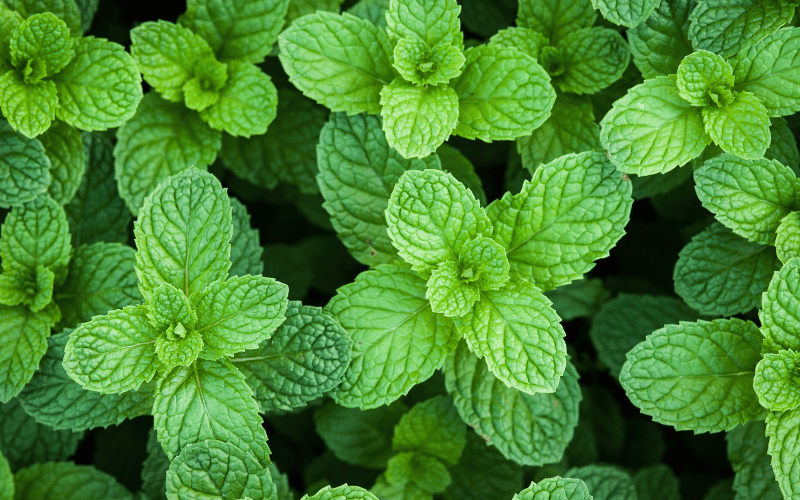4. Peppermint: Cooling Relief for the Gut

Peppermint isn’t just a refreshing flavor for candies or a popular choice for teas; it’s a herb with a storied history of aiding digestion. The main component responsible for its therapeutic effects is menthol. This compound has antispasmodic effects, particularly on the muscles of the digestive tract, making it a valuable tool for those with IBS.
One of the standout features of peppermint is its cooling sensation. This isn’t just a sensory experience but has tangible benefits, especially in soothing an irritated digestive system. For those grappling with the discomfort and pain that IBS can bring, peppermint can serve as a natural and effective remedy.
But peppermint’s appeal isn’t limited to its immediate soothing effects. Studies have indicated that it may also help increase the passage of both gas and fluids through the digestive system, addressing bloating and constipation, two common IBS symptoms.
There’s also an added bonus when incorporating peppermint into one’s diet – its rich antioxidant profile. While these antioxidants don’t directly target IBS symptoms, they contribute to overall health and wellness, fortifying the body against various ailments.
In sum, peppermint is a delightful blend of flavor and function. Whether enjoyed as a tea, incorporated into dishes, or even taken as an oil capsule, it promises both gustatory pleasure and digestive relief. (4)